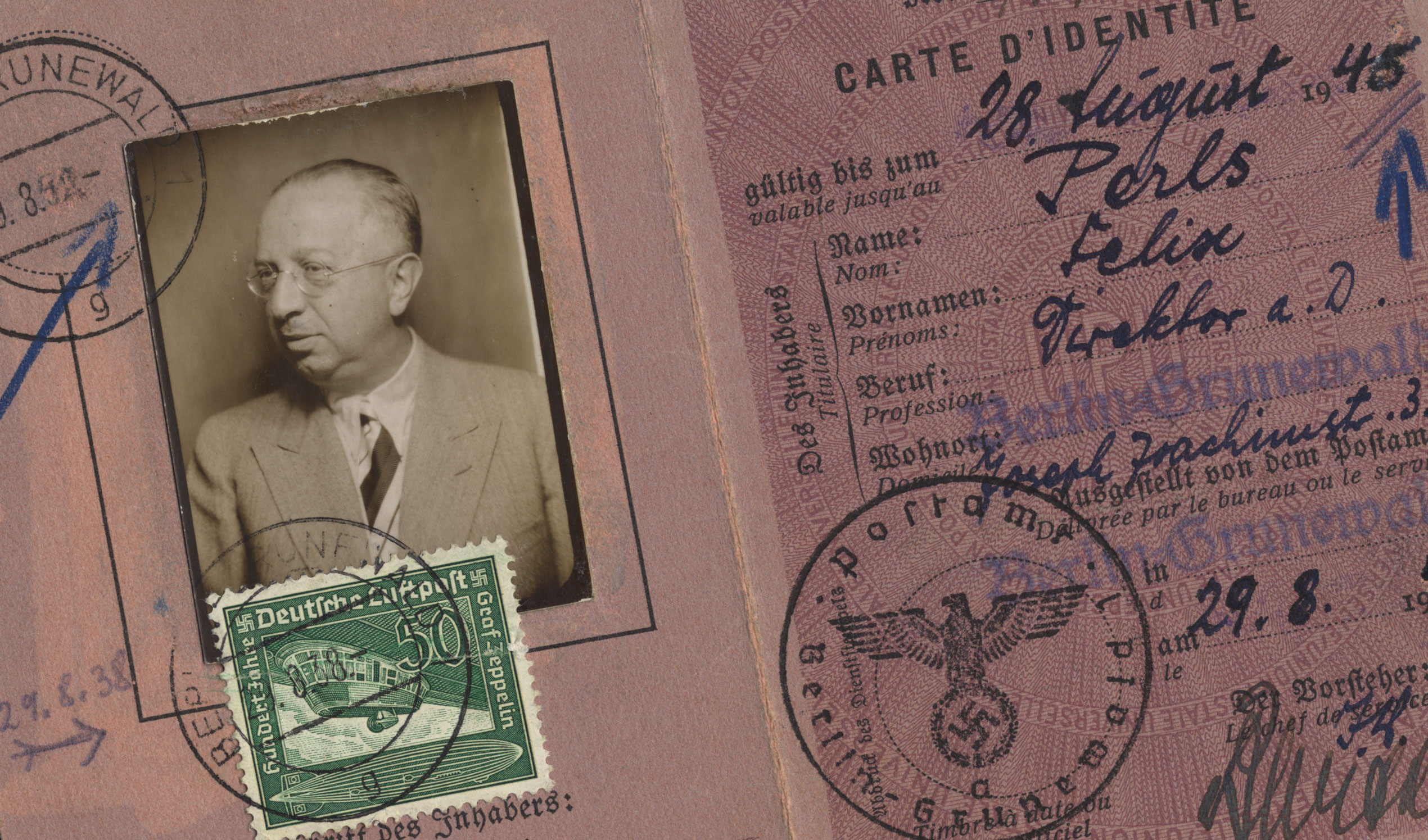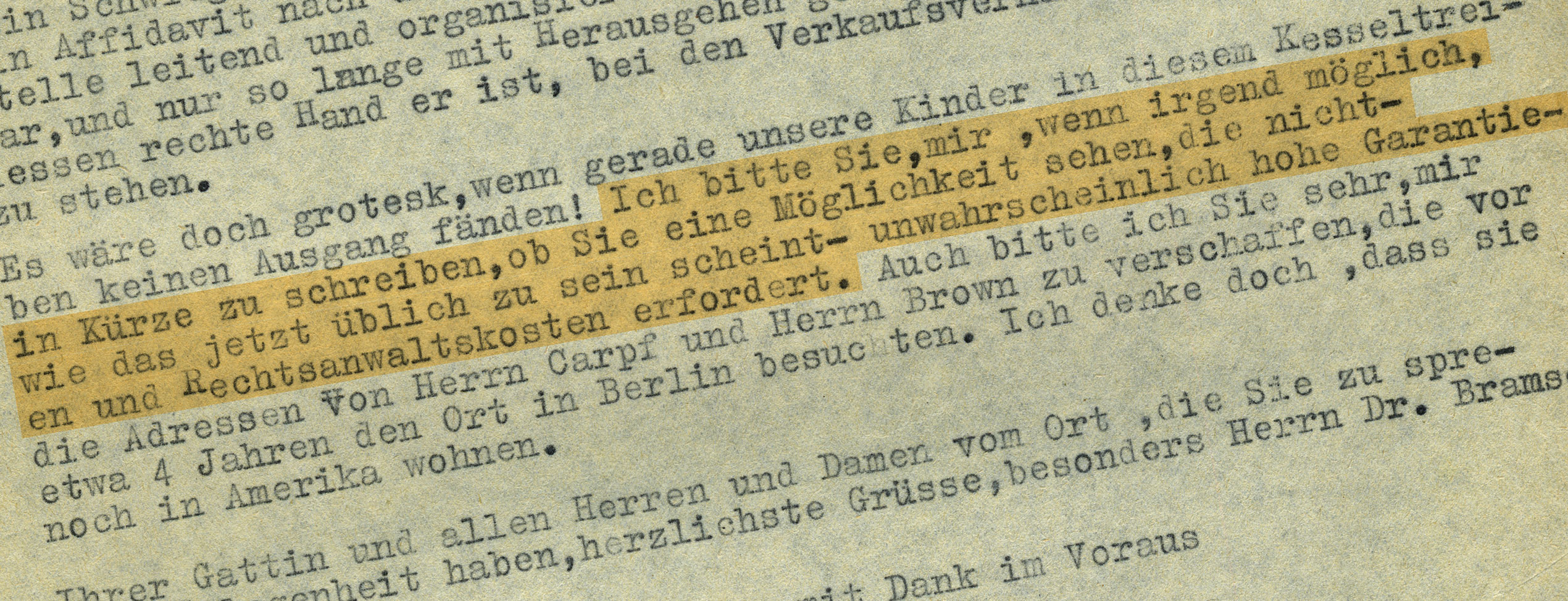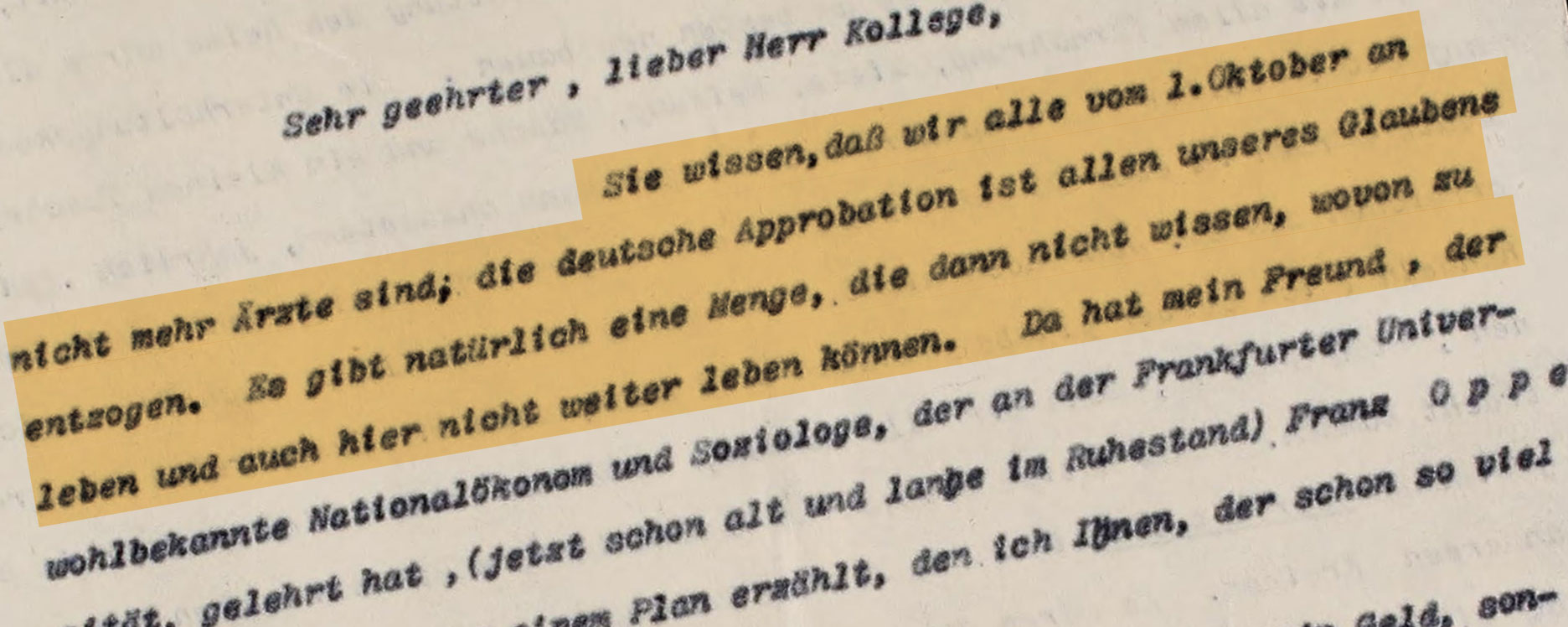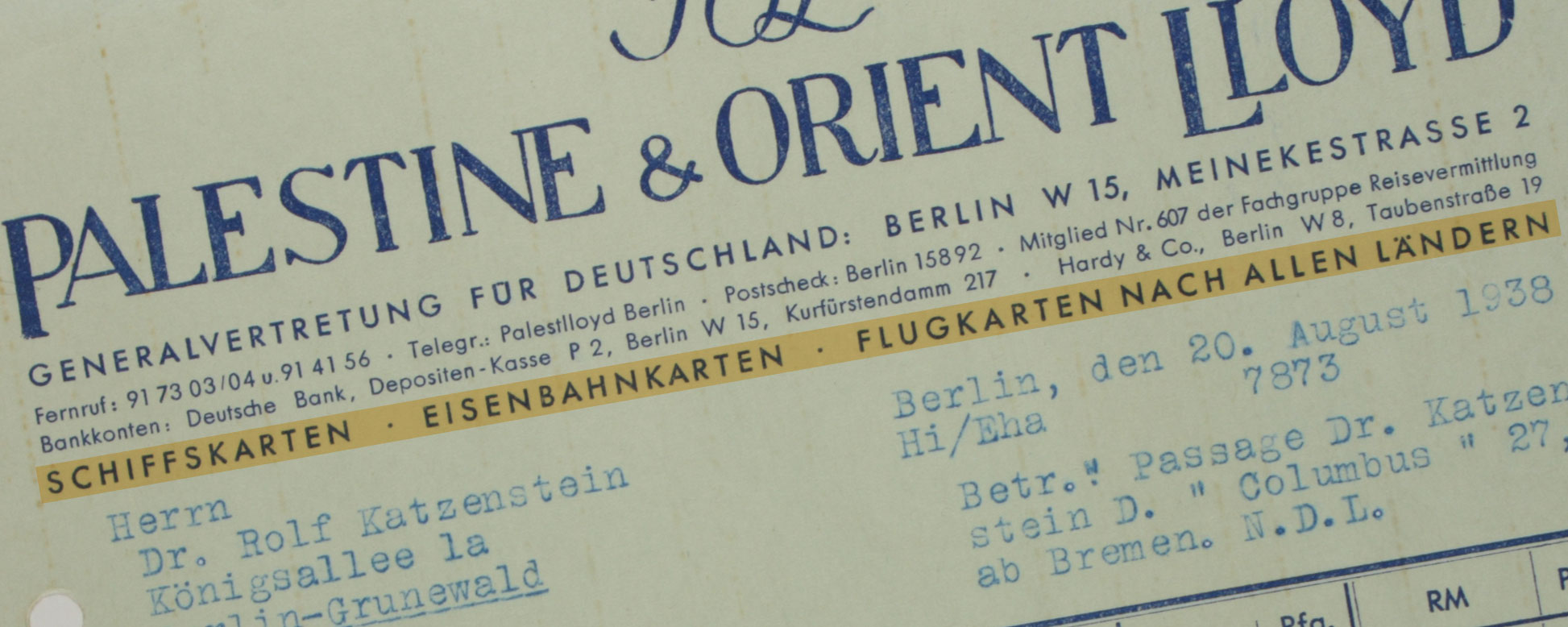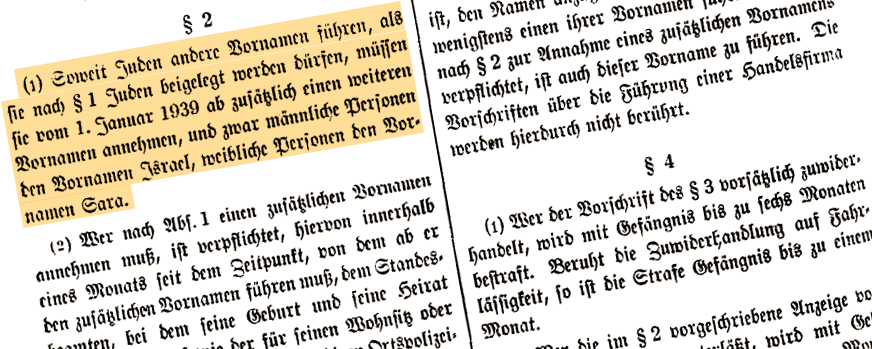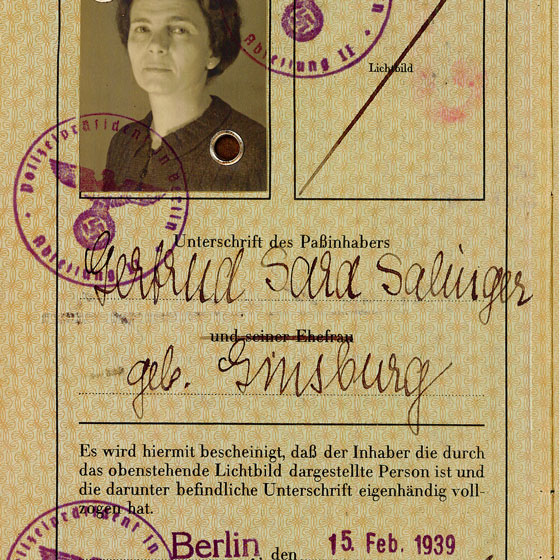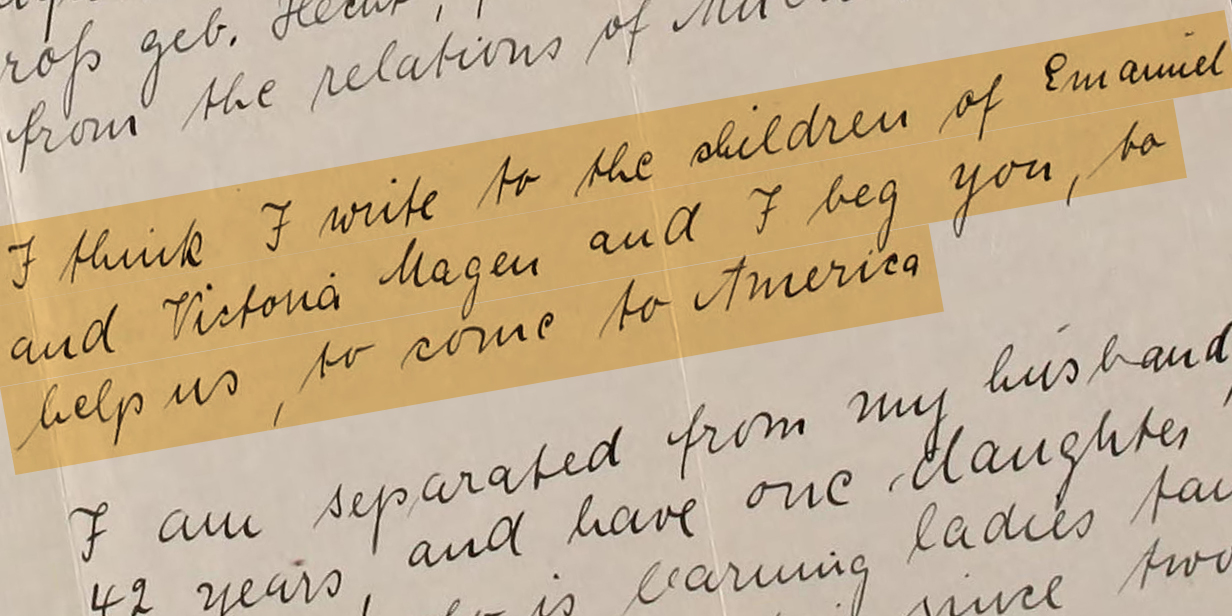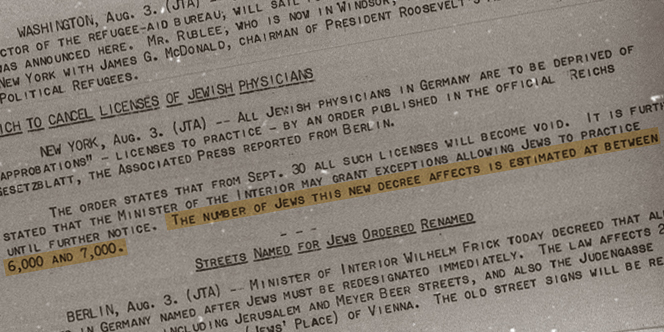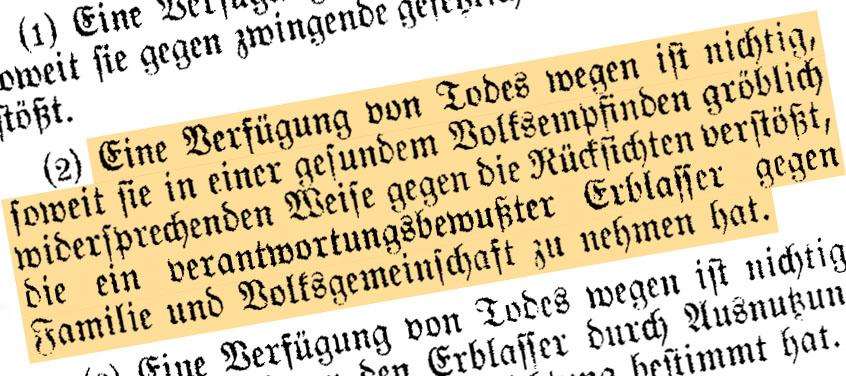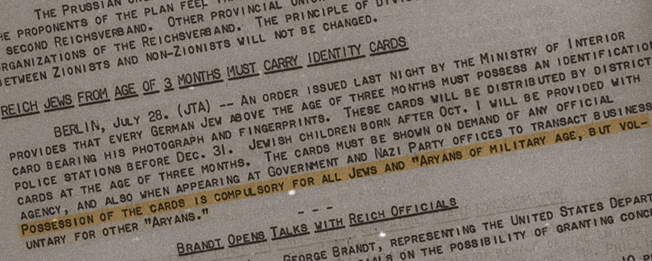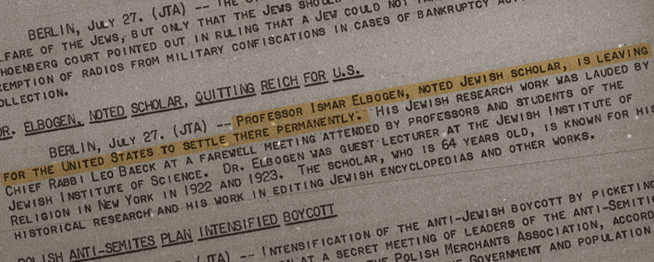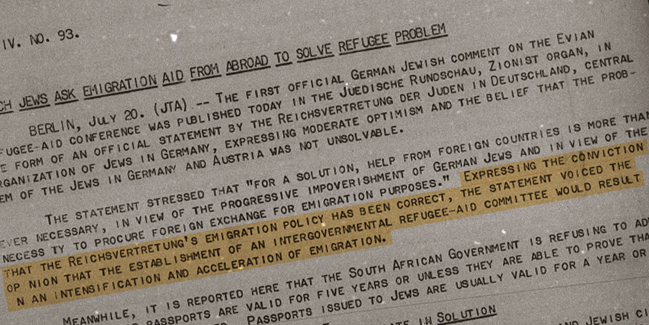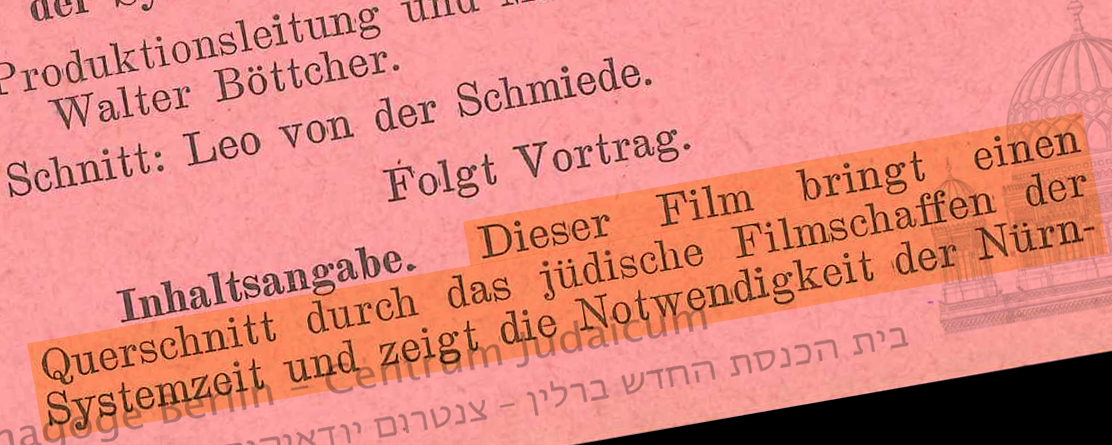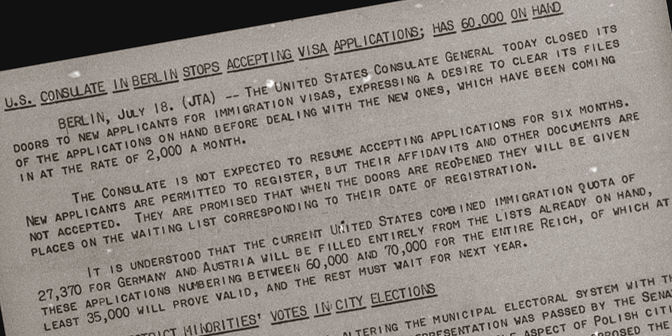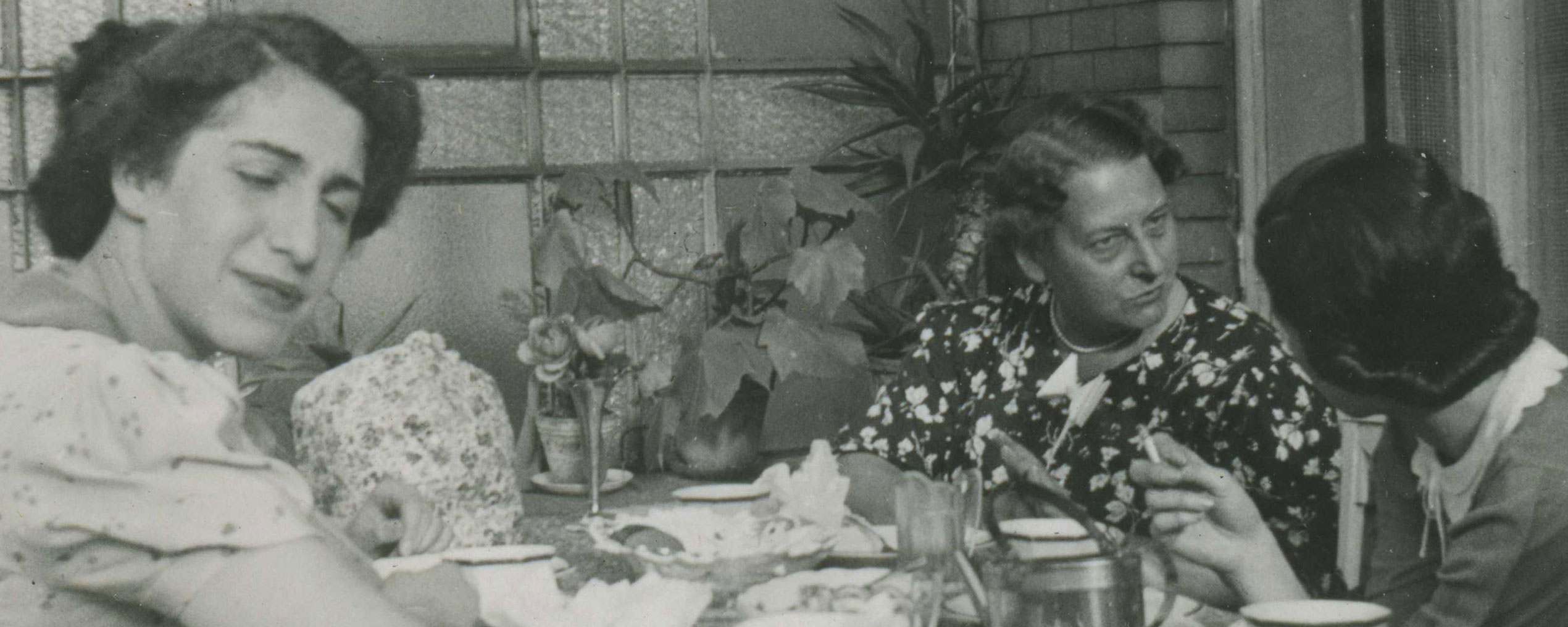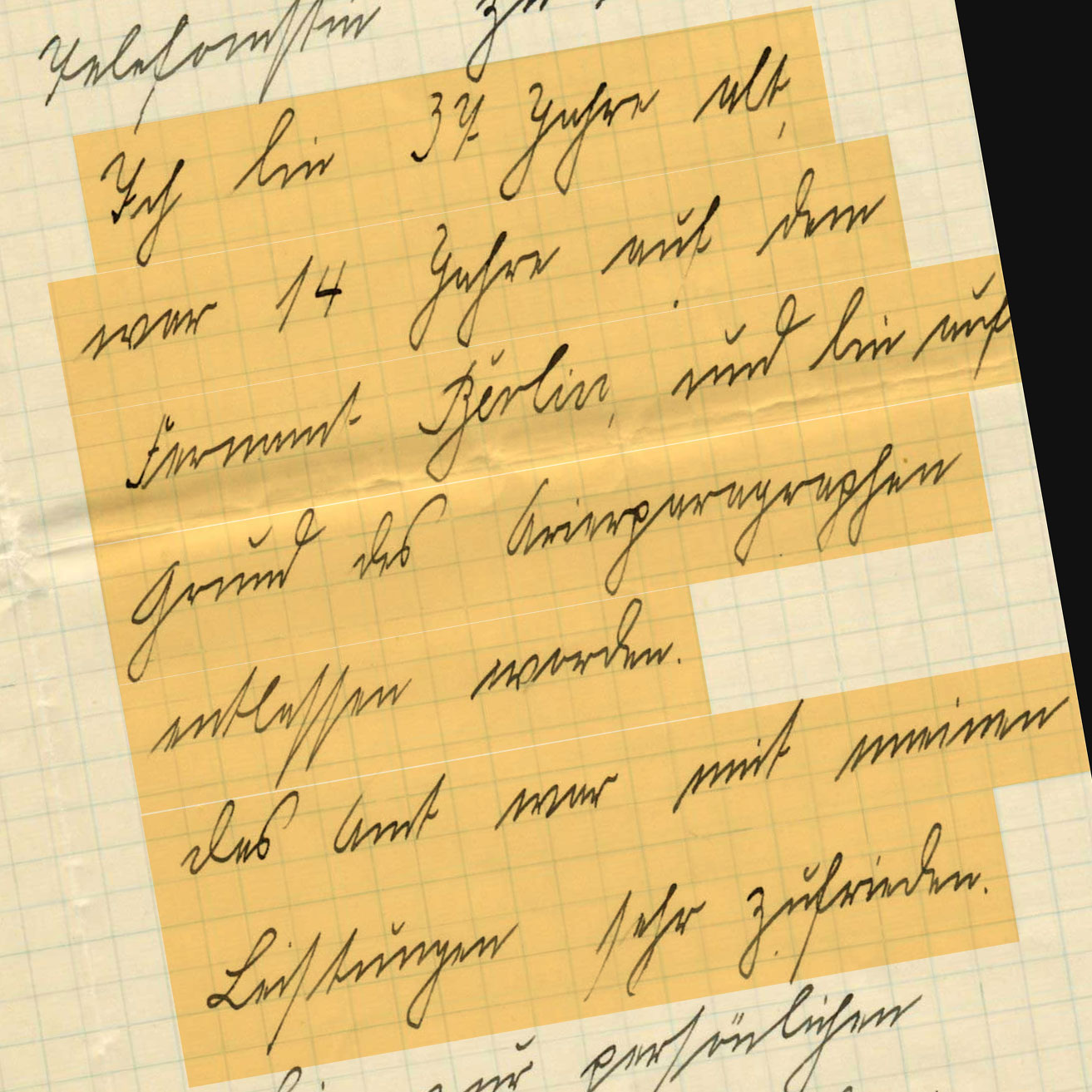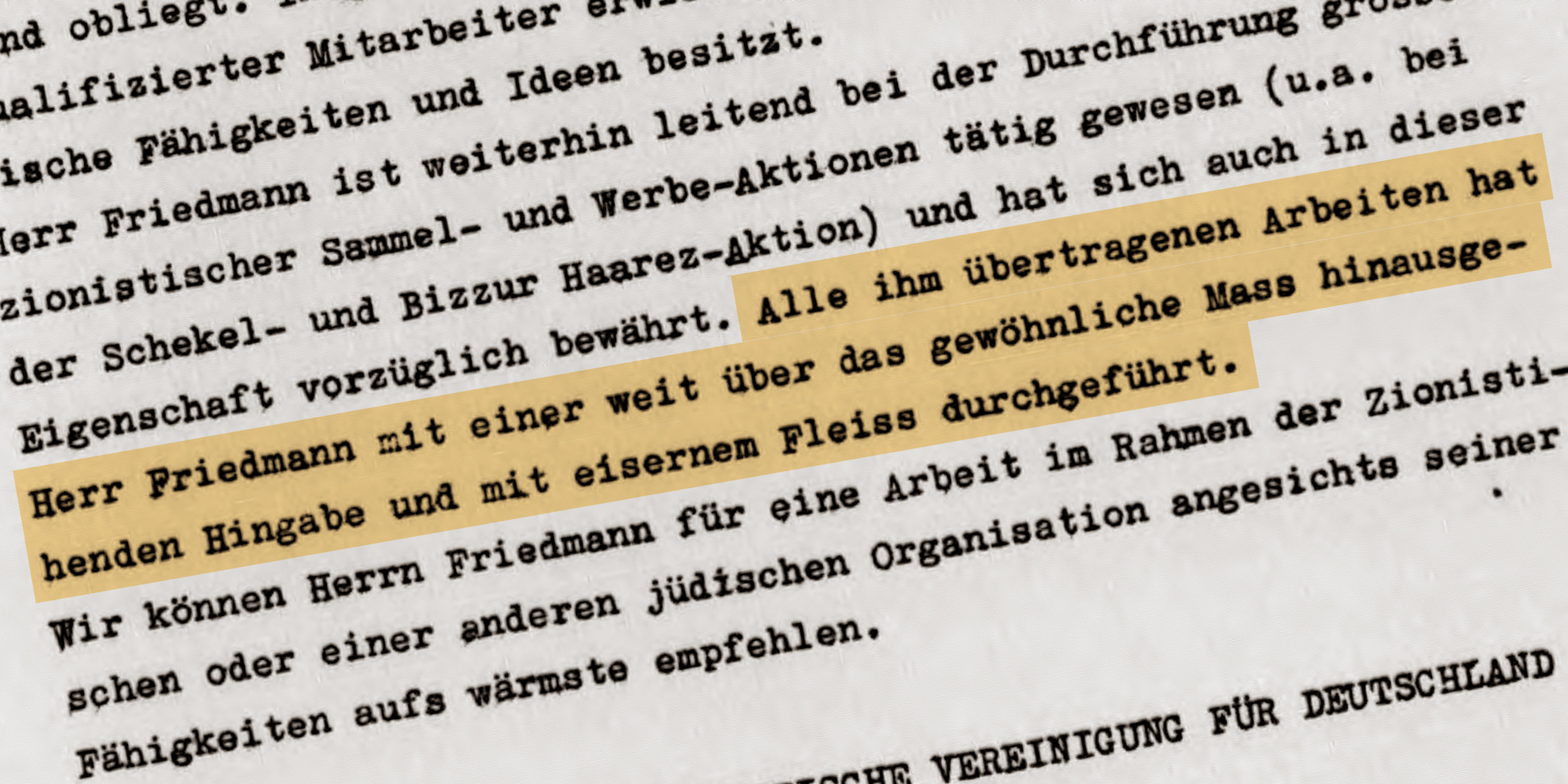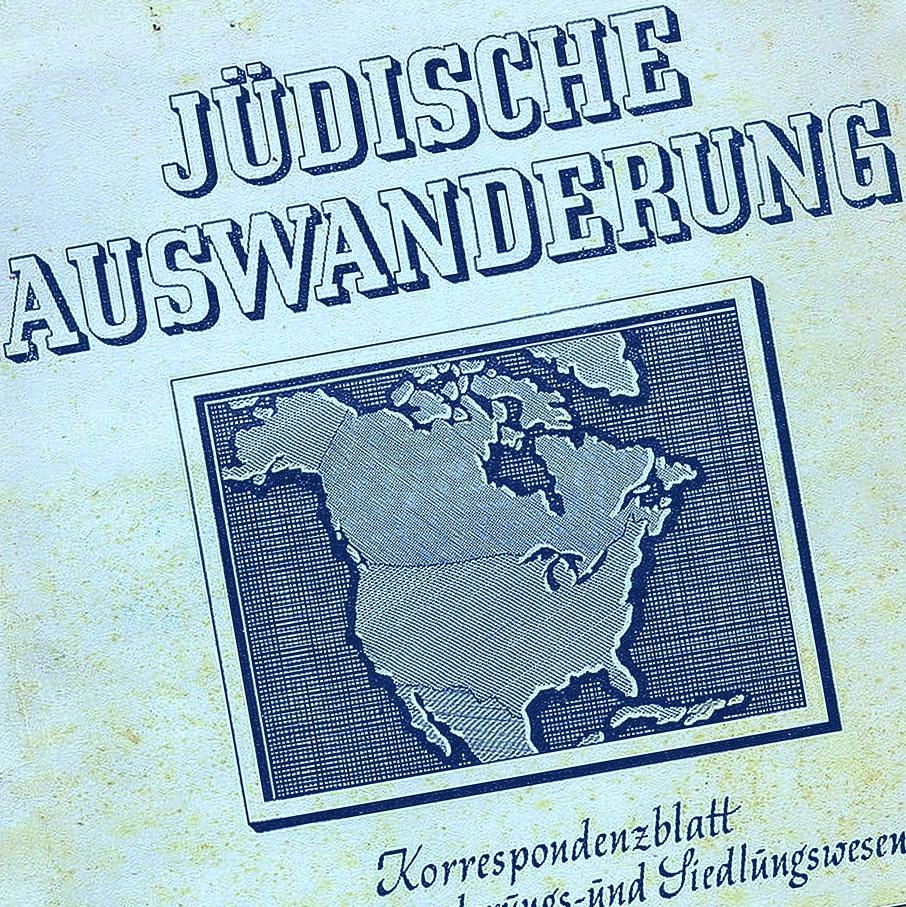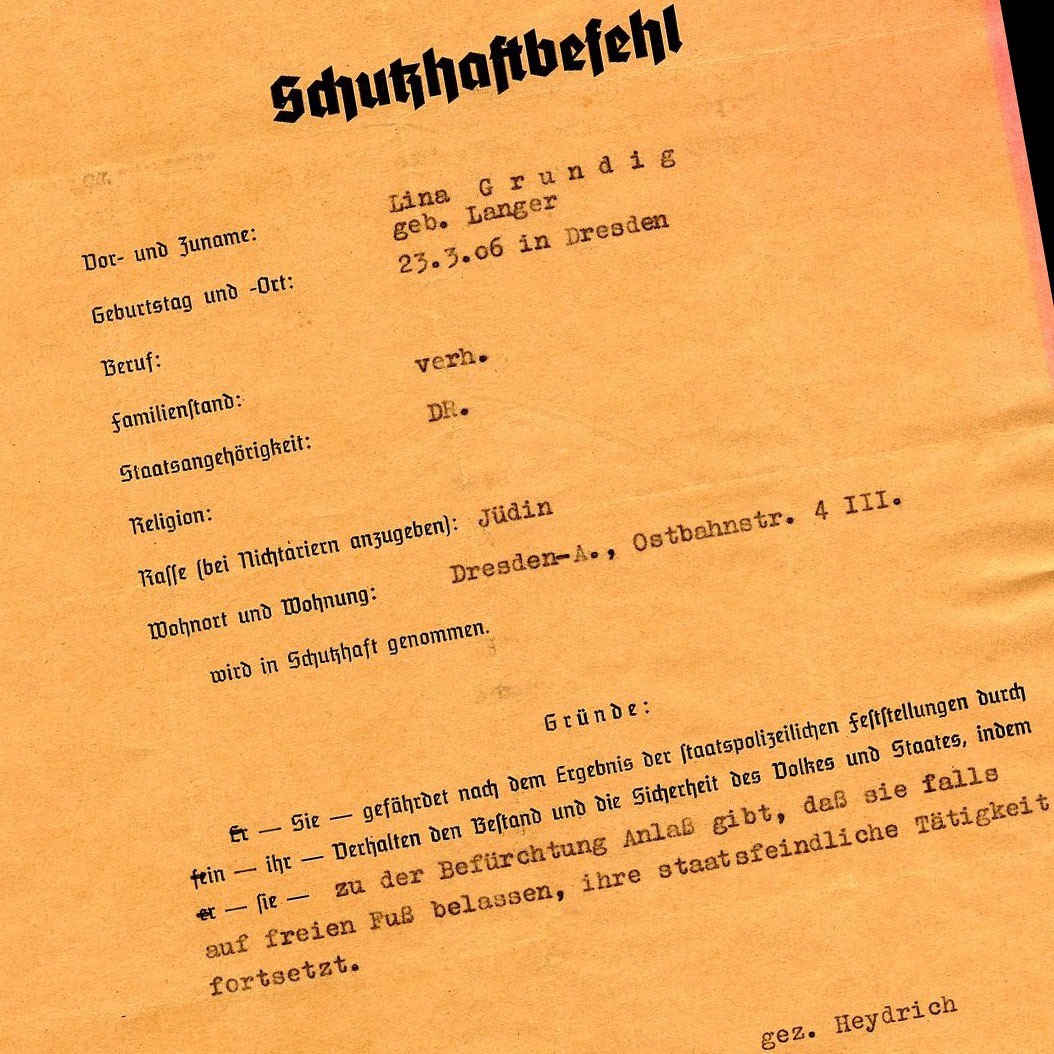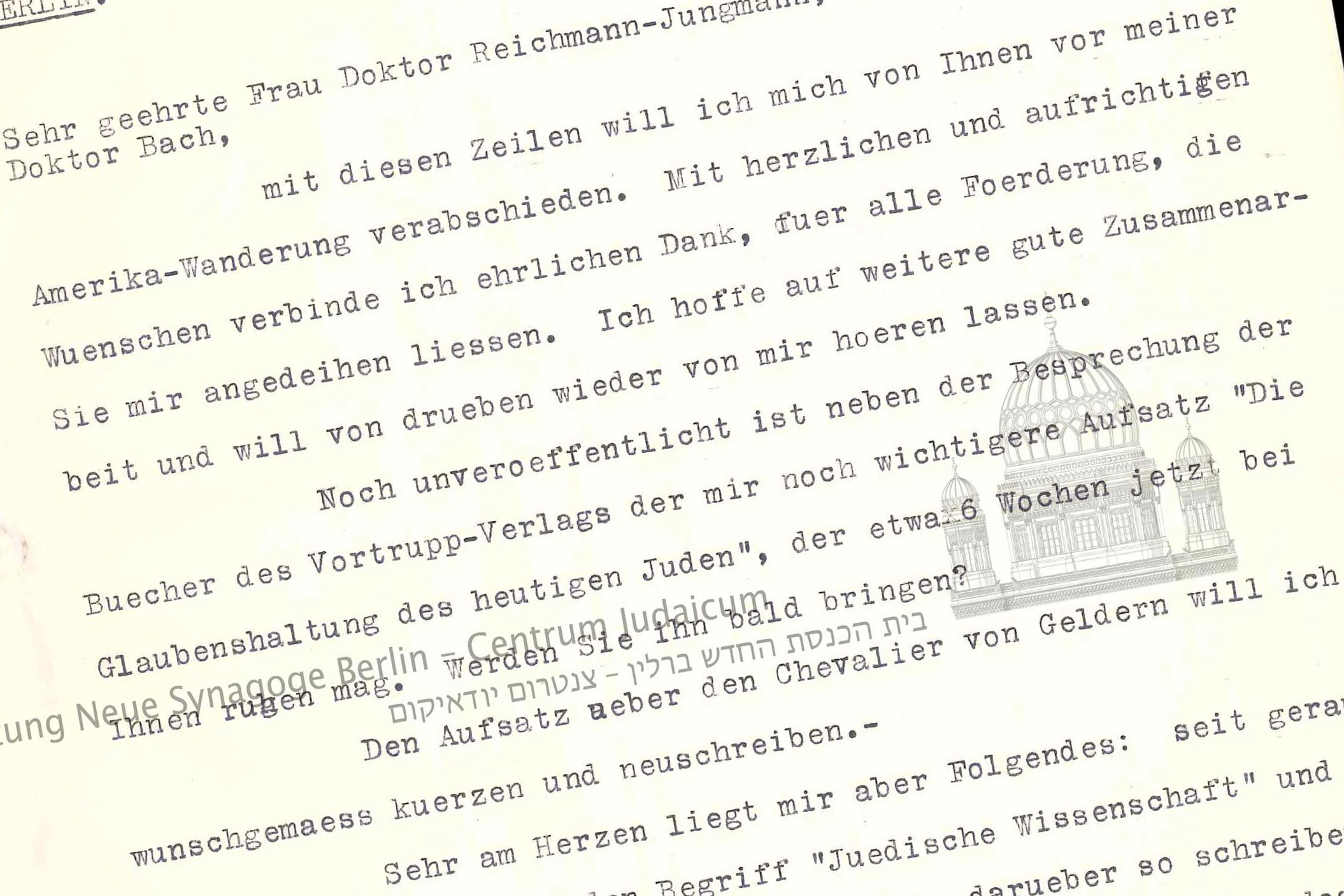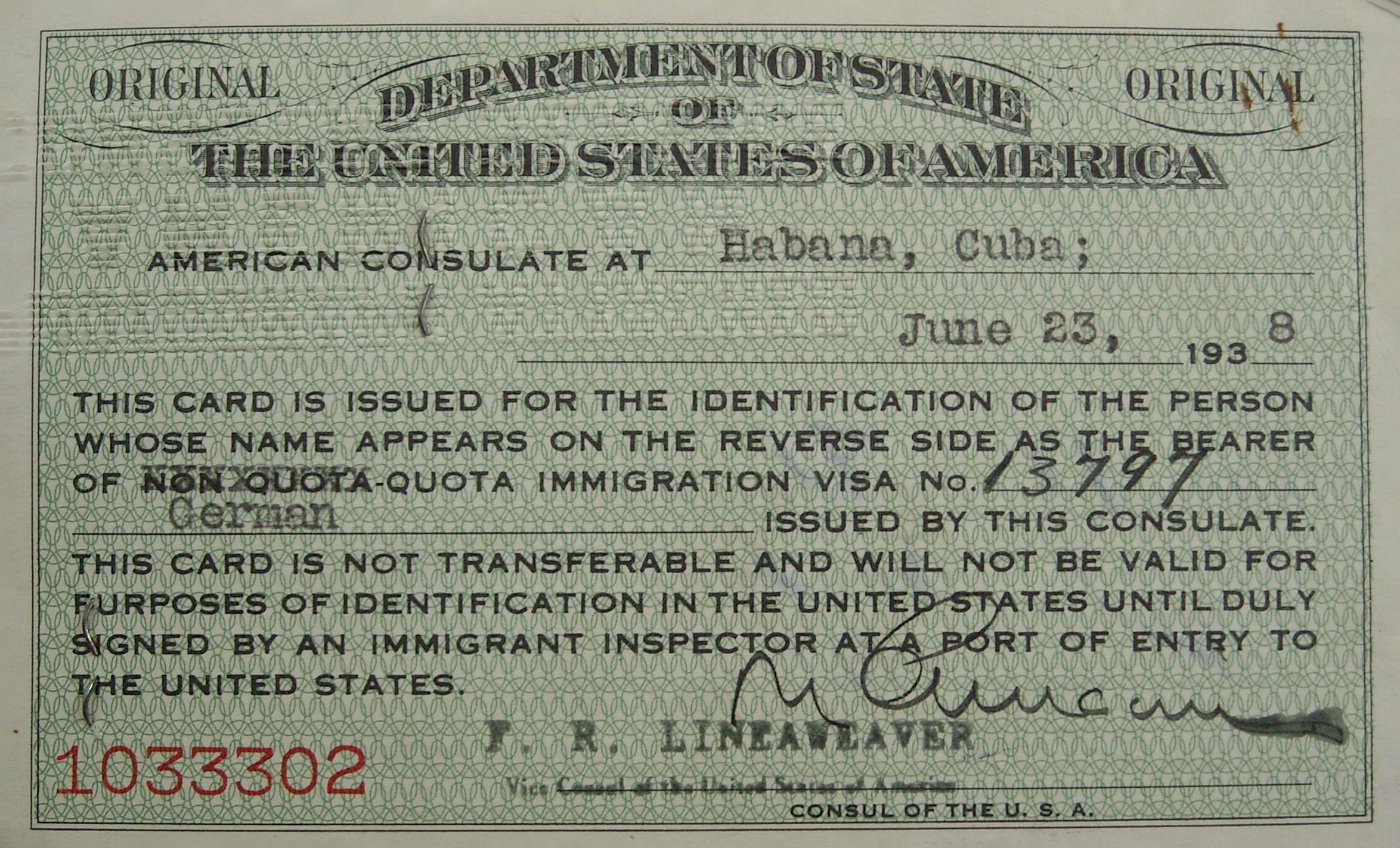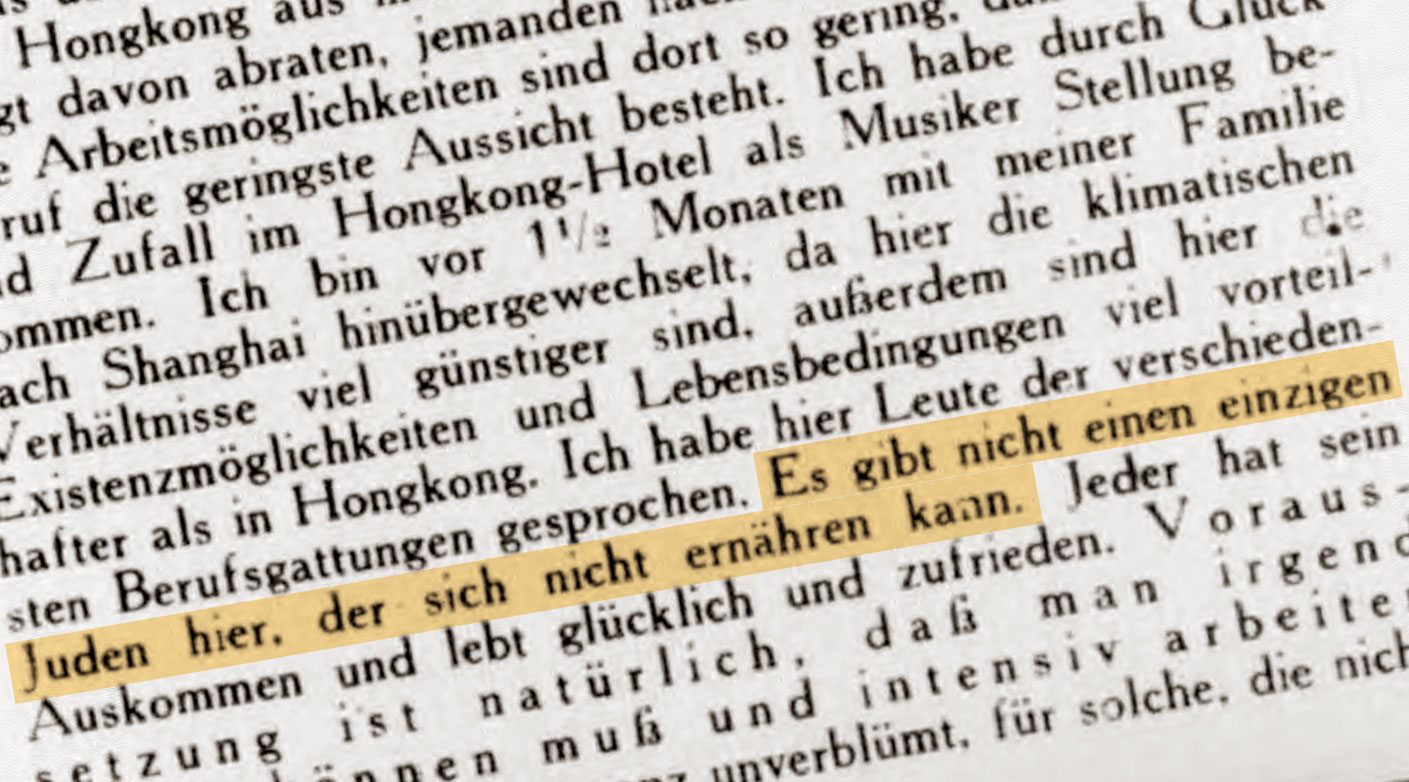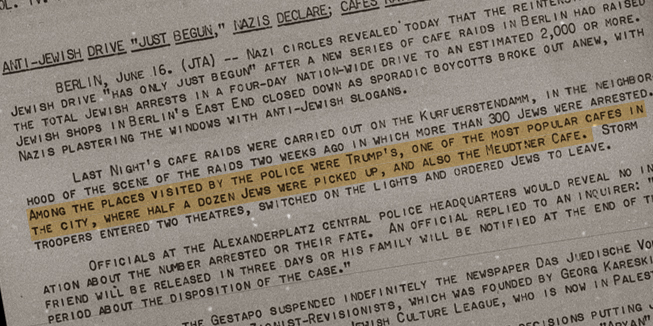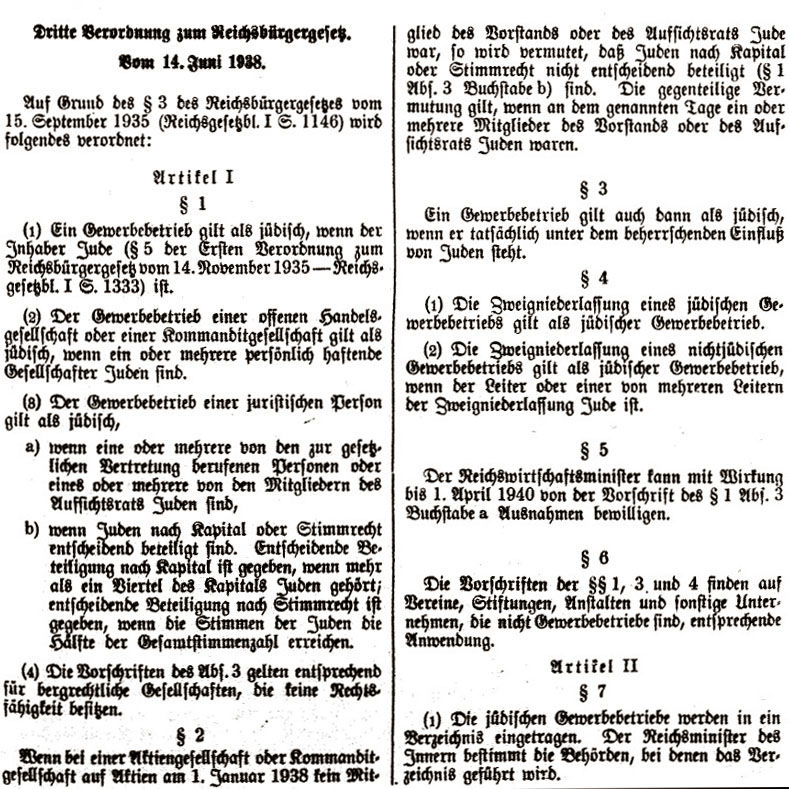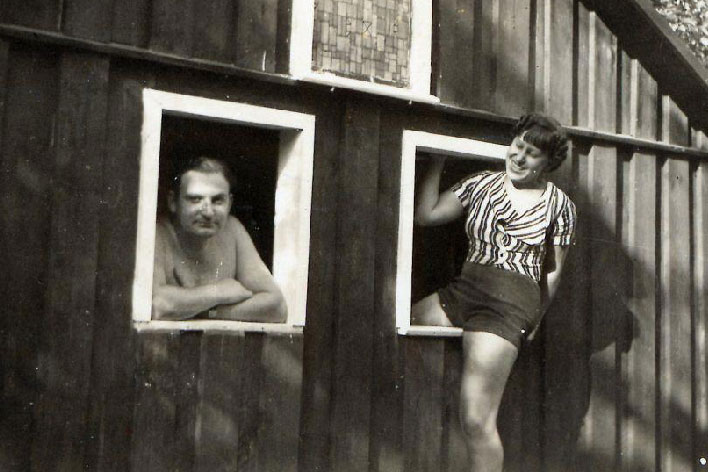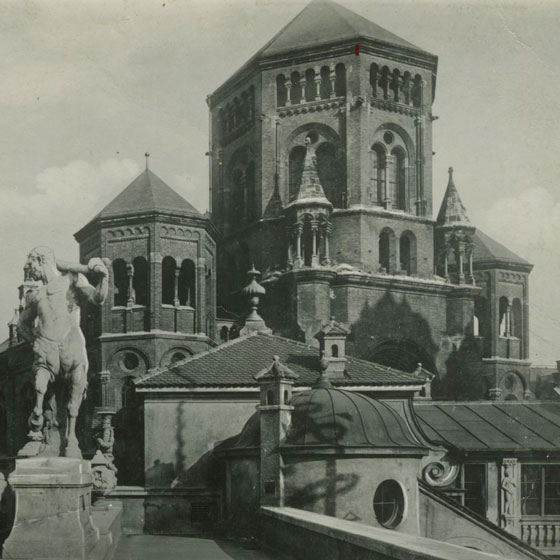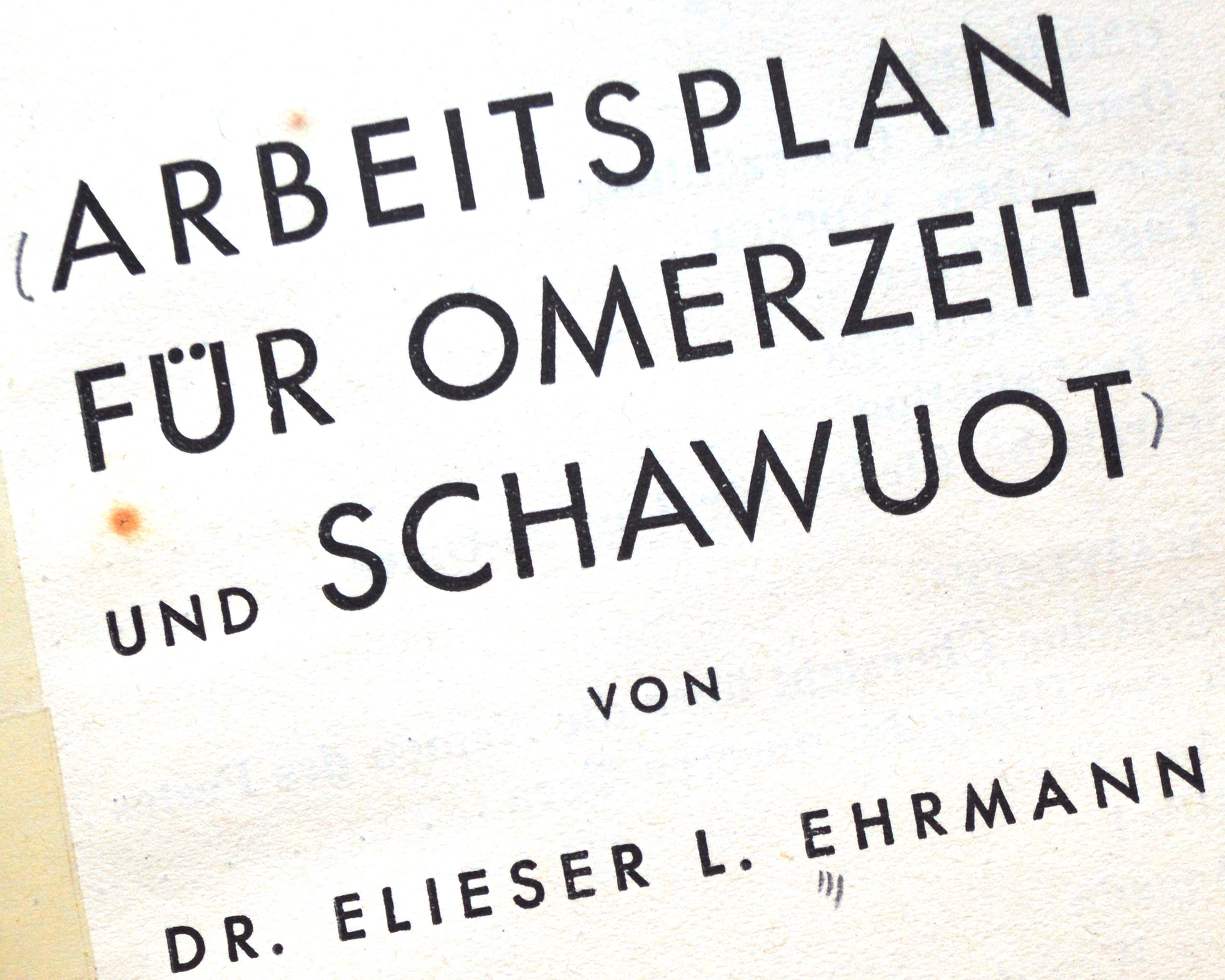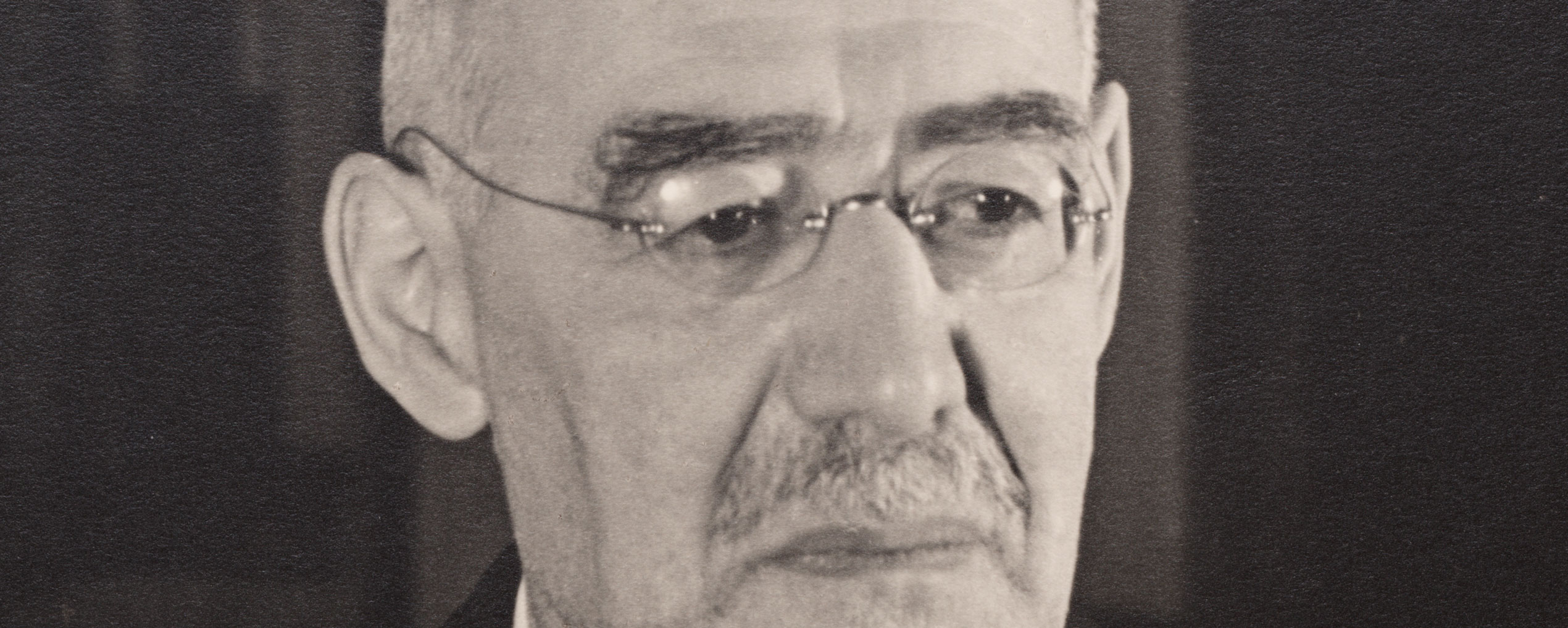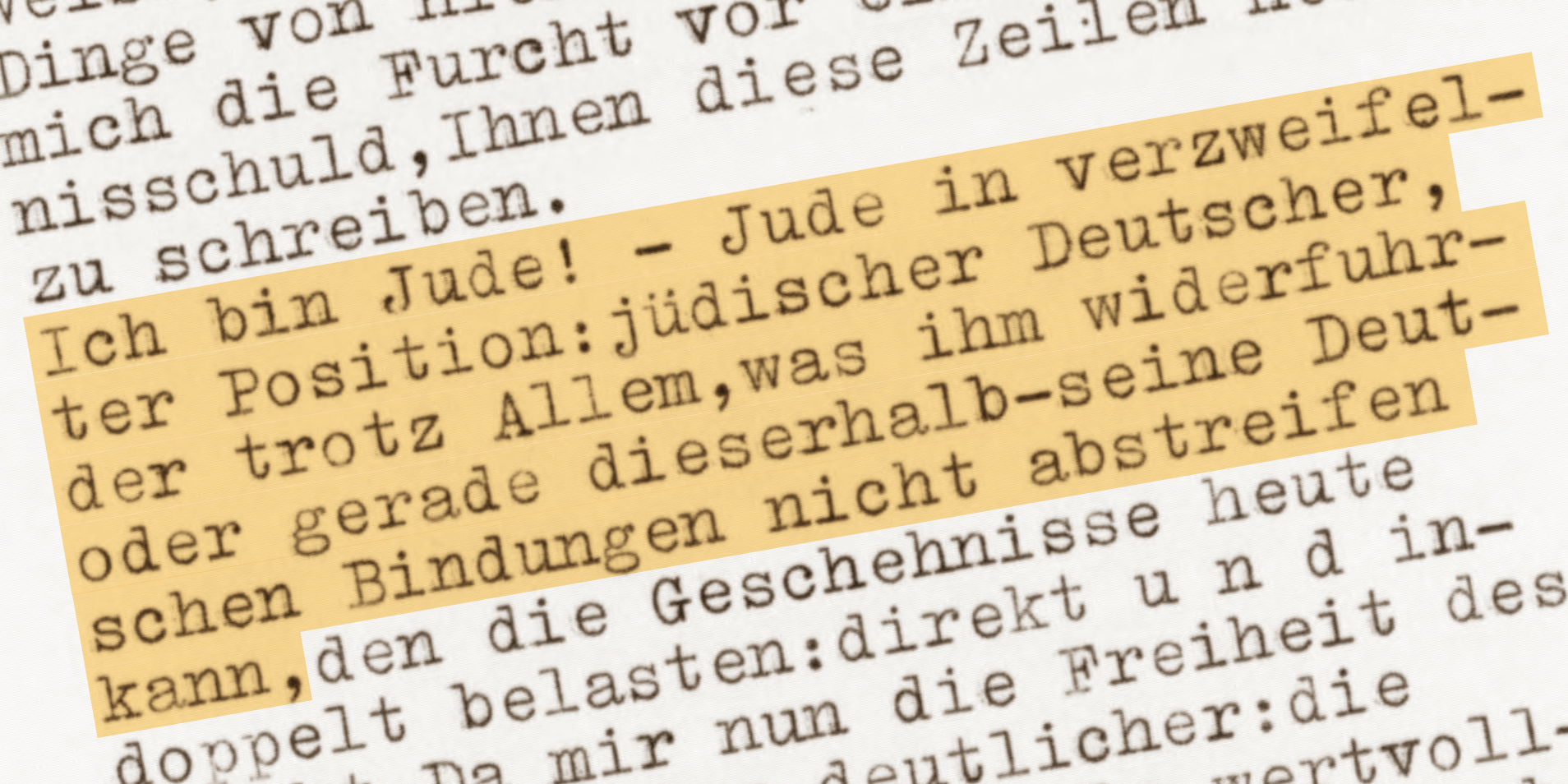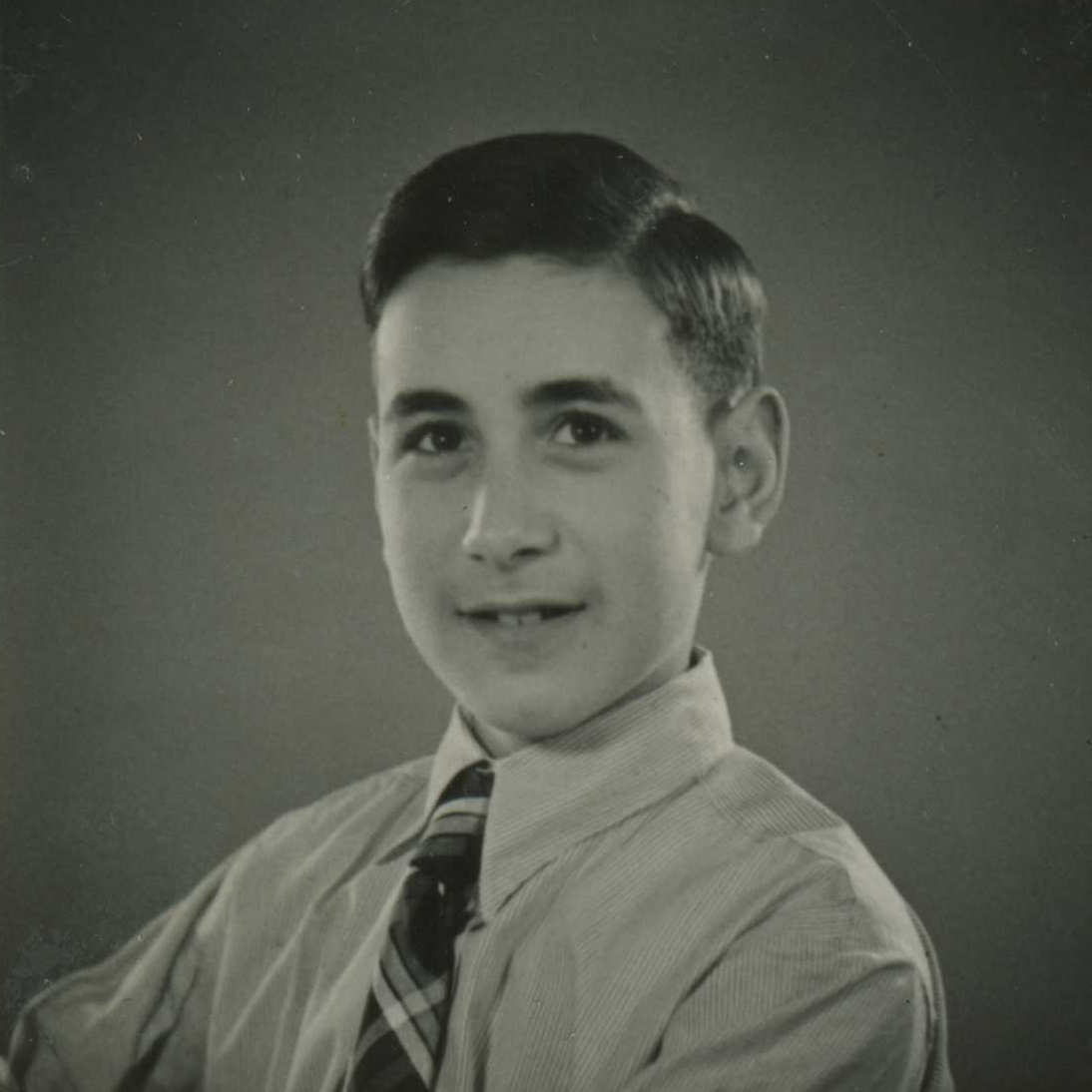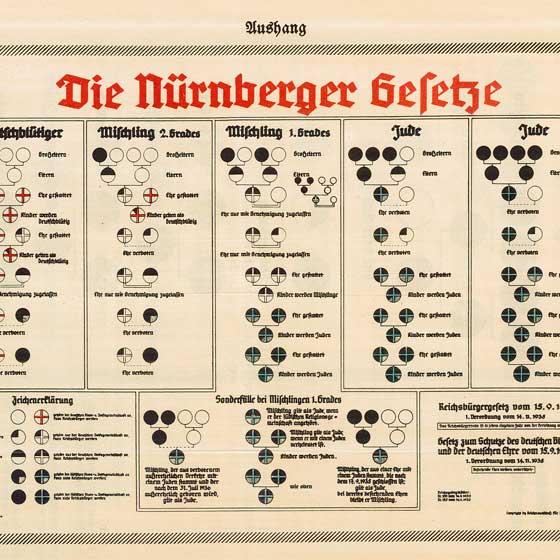Waiting yet again
Immigration quotas are strict
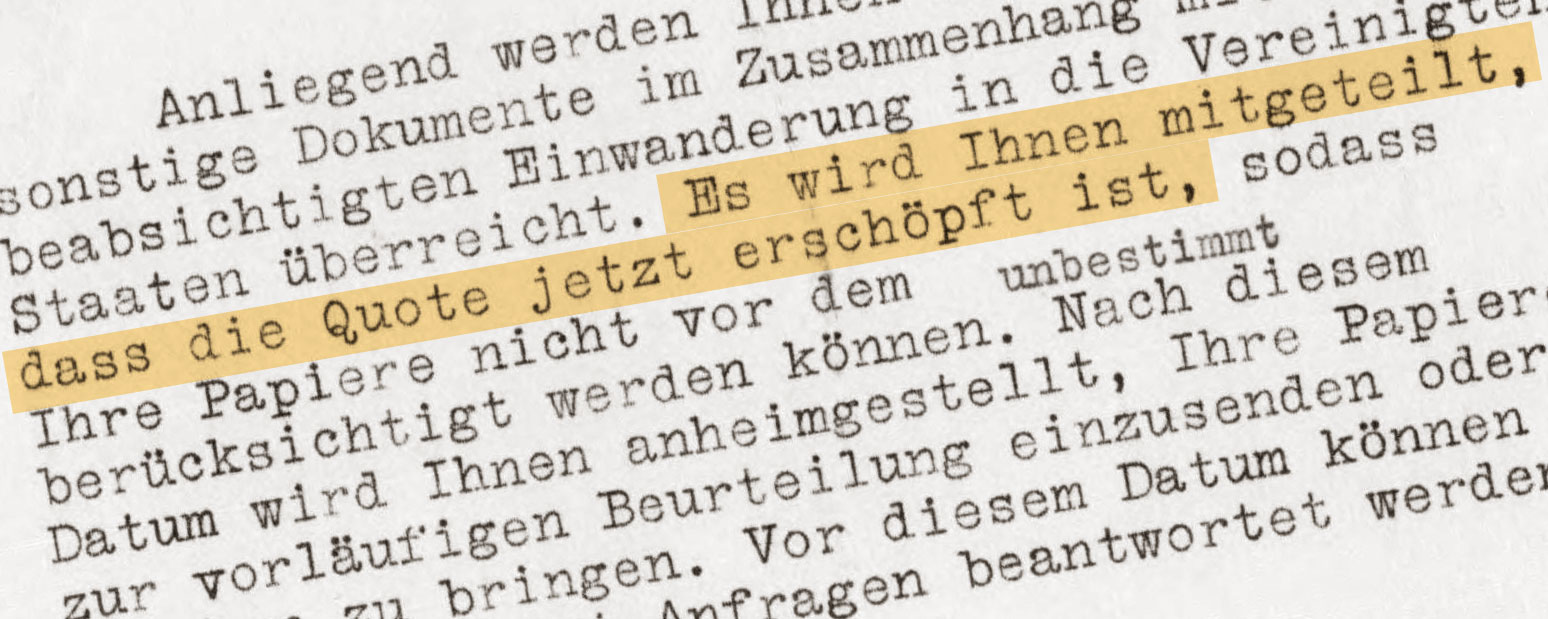
“We must inform you that the quota is already filled.”
Berlin/Breslau
Appointed date: uncertain. The American Consulate General at Breslau didn’t even tell Carl Proskauer and his family a date in the distant future on which they could once again apply for a U.S. visa. The quota was already full. The American quota determined how many persons per country of birth (not per country of citizenship!) were allowed to immigrate to the United States annually. In the year 1938, the number of visa applications from Germany rose rapidly. For individual cases such as that of Curt Proskauer and his family, this meant yet another round of excruciating waiting periods and exhausting paperwork, since many documents, which the Breslau dentist and historian of medicine had already submitted to the American Consulate General, would expire after a certain period. Whether Curt Proskauer could apply for a visa again by then? Uncertain!
SOURCE
Institution:
Leo Baeck Institute – New York | Berlin 
Collection:
Paul Proskauer Collection, AR 25641 
Original:
Box 2, folder 30








































